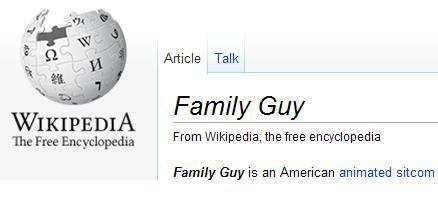Major entertainment studios have long been accused of being completely out of touch when it comes to digital and Internet distribution and the laws that surround the Web. So it wouldn’t be surprising if, in their heavy-handed attempts to stop piracy, these studios actually censored themselves. Earlier this week, TorrentFreak appeared to have found examples of exactly that in Google’s regularly released transparency report. Lionsgate, for instance, apparently asked Google to remove links to Cabin in the Woods on Amazon, iTunes, Blockbuster, and Xfinity—all authorized outlets.
It made for some great headlines. BoingBoing’s Cory Doctorow, for one, laughed, “Major studios send legal threats to Google demanding removal of links to their own Facebook pages and more.” But much as I’d love to smirk at the entertainment industry’s self-sabotage, there is more to the story.
Google’s frequently updated transparency report discloses copyright holders’ requests to remove search results that apparently violate the 1998 Digital Millennium Copyright Act. The law is supposed to protect intellectual property from piracy, and various sites treat DMCA requests differently. YouTube, for example, automatically removes videos that appear to violate the DMCA. But pranksters have on occasion manipulated this process to take down legitimate content, as happened to Lady Gaga, Rihanna, and Justin Bieber last year. Because the law is so wildly out of step with current technology, folks have been advocating for an overhaul of the DMCA for a while now.
Earlier this week, TorrentFreak noticed that in early November, a bunch of studios apparently requested the removal of links to their own Facebook pages, Wikipedia pages, and websites—even movie reviews.
The bizarre take-down requests TorrentFreak uncovered include:
- 20th Century Fox requested removal of links to the Family Guy Wikipedia page, How I Met Your Mother on CBS.com, a Huffington Post article about the film Prometheus, and, most ridiculously, the Prometheus Watch Co., which, as the name suggests, makes watches.
- BBC Films asked Google to scrap results for its own official Facebook page for Ill Manors.
- Under the guise of protecting its copyright of Cinderella, Disney requested the removal of links to The Flinstones, Frida, and Revolution. (Yes, this makes no sense at all.)
But the documents show that the studios themselves did not file the DMCA requests. Instead, a previously unheard-of anti-piracy group called “Yes It Is—No Piracy!” apparently filed them on behalf of the studios. The group’s only Web presence: a placeholder website with the GoDaddy logo. The lack of an actual website made TorrentFreak wonder whether this was all a PR stunt to prove how easy it is to manipulate DMCA take-downs, and I am inclined to agree. Even the name, “Yes It Is—No Piracy,” reeks of a prank. Maybe it was the work of the Yes Men, a group of activists who use pranks and media spectacles to try to raise awareness of social issues.
I reached out to the various studios to ask whether “Yes It Is—No Piracy” had been authorized to file DMCA requests on their behalf to Google. A representative from Sony Pictures told me in an email, “We have not worked with this company, and they were not authorized to send notices on our behalf.” The same holds true for Lionsgate and Summit, a spokesperson for those studios told me.
Let’s assume it was a prank. It made for some funny headlines, but did it actually raise awareness on copyright abuses? Not really. You don’t have to set movie studios up to look out of touch when it comes to the Internet, as they do that all by themselves. Try again, Yes It Is—No Piracy.
